Food for Dengue – What To Eat And What To Avoid!
By Dr. Arpit Verma +2 more

Get,

to manage your symptom
Get your,


4 Cr+ families
benefitted

OTP sent to 9988776655



You’ve successfully subscribed to receive
doctor-approved tips on
Whatsapp

Get ready to feel your best.

Hi There,
Download the PharmEasy App now!!


Register to Avail the Offer
Send OTPBy continuing, you agree with our Privacy Policy and Terms and Conditions

Hi There,
Sign up on PharmEasy now!!
Trusted by 4 crore+ families

OTP sent to 9988776655



You have unlocked 25% off on medicines




Code: NU25

Comments


Leave your comment here
By Dr. Arpit Verma +2 more
Table of Contents
Did you know that a single bite from the Aedes mosquito can trigger multiple symptoms? High fever, headaches, skin rashes, and unbearable joint and muscle pain[1] – these signs can appear within just a few days, and if left untreated, can lead to dengue. Recovery from dengue requires care, plenty of rest, and, most importantly, the proper food intake. What you eat can play a vital role in improving immunity, restoring lost nutrients, and aiding speedy recovery. In this article, we’ll read about the best foods to eat and the ones to avoid to help your body fight dengue.
Friendly Reminder: The information shared here is for educational purposes only, and the reader should consult a registered medical practitioner before implementing any changes to their health routine.
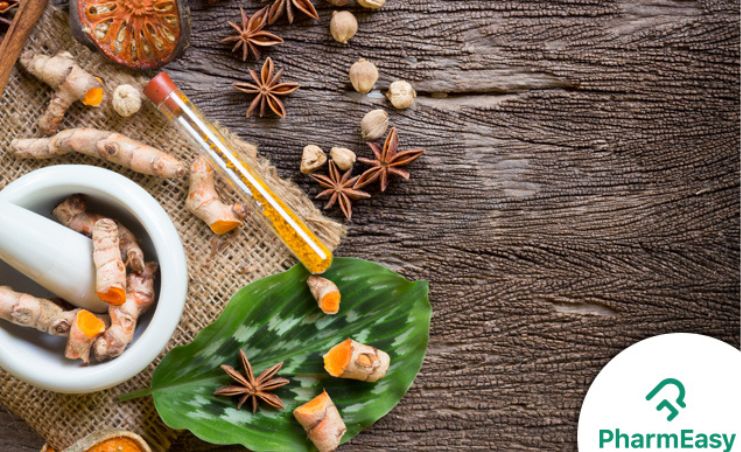
When diagnosed with dengue, follow the treatment advised. Diet may differ from patient to patient; talk to your doctor about the dos and don’ts related to the diet for dengue. Here are some common foods that are often helpful during dengue –

Eat small portions of easy-to-digest food[7]. Clear soups, khichdi, daliya, and boiled eggs are easily digestible. If available, choose freshly prepared homemade options.
Some research suggests that drinking barley-infused water might benefit dengue fever, as it has antipyretic effects[5]. However, as with all other herbal ingredients, a qualified specialist should moderate and monitor its consumption.
Dr. Siddharth Gupta, BAMS, MD (Ayu)
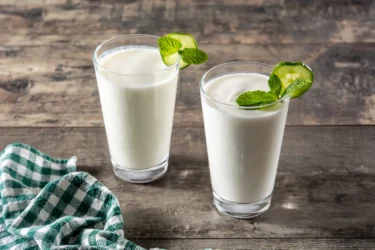
Buttermilk is rich in probiotics and helps restore electrolyte balance. A fall in blood pressure can be critical during dengue. Buttermilk is often considered soothing for the gut and allows the patient to feel better[10].
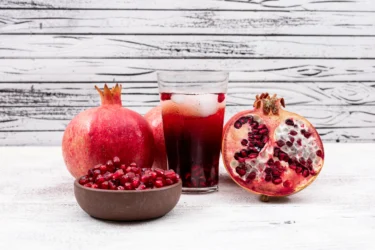
It plays a crucial role in reducing fatigue and tiredness that a typical dengue patient experiences. Since these bright red seeds are also a rich source of iron, they help in maintaining an average blood platelet count[2].

Dengue generally results in dehydration. Thus, coconut water is immensely beneficial as it contains electrolytes and vital nutrients[6]. In many cases, ginger water is also suggested since it helps fight the nausea many dengue patients experience.

Being an antiseptic and metabolism booster, many doctors also recommend the consumption of turmeric with milk. This helps in faster recovery[3].

A rich mix of antioxidants, Vitamin C, and orange juice may help boost vitamin C and glucose levels to fight weakness and nausea. Consume homemade fresh juice only[2].
Please note: Dengue fever can rise rapidly after the onset of the initial symptoms. Thus, one must seek medical help when these symptoms are observed. The remedies mentioned above should be adopted as only supplemental measures in addition to prescribed treatment.
When suffering from Dengue, you must consume plenty of fruits and vegetables. Eating fruits and vegetables rich in vitamins C and K. Vitamin C-rich foods can provide strength and an immunity boost. However, you should avoid consuming chocolate-based, spicy, and fatty foods.
Dr. Rajeev Singh, BAMS
Also Read: Typhoid Vaccine: What is It, Types, When to Be Taken & Side Effects
Although there are no strict dietary restrictions, opting for a less oily and spicy diet for a few days can make digestion easier. Also, make it a point to consume food that is easy to digest.
Here are some of the food items you should avoid if you are suffering from Dengue:

Non-vegetarian foods like red meat, fish, beef, and pork are strictly prohibited. Increase your fluid intake and consume warm water instead of regular water.

Choosing a lighter diet and avoiding oily and fried food is best [4]. Dengue fever can affect the liver function, which presents as nausea and vomiting. Consuming small portions of easy to digest food is therefore recommended.
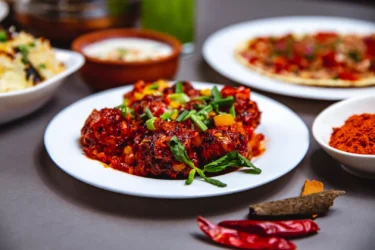
This is a big no-no for all who are recovering from dengue[4]. Spicy food can be difficult to tolerate by a person suffering from dengue fever. Opt for soft and less spicy options which can be digested with ease.

Your body needs a lot of liquid during this time, but that does not mean caffeinated or alcoholic beverages[3]. These drinks cause fatigue, increase heartbeat, and overall are not good for you, especially when you are suffering from an illness.
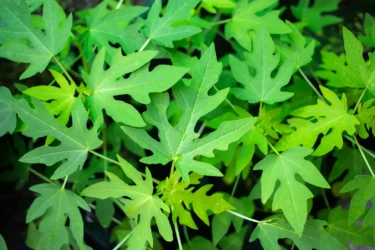
Talk to your doctor before consuming any herbal preparations. It can even worsen the nausea and suppress the appetite.
Also Read: Best Foods To Eat And Avoid With Kidney Stones
Also Read: Influenza B: What is It, Causes, Symptoms, Treatment & Prevention
Dengue can cause symptoms ranging from mild to severe. Doctors advise monitoring your temperature, blood pressure, and platelet count when diagnosed with dengue. Never rely on home remedies or self-medication. Falling blood pressure and a drop in platelet count are two common causes of fatality in dengue. Always manage this fever under the supervision of a doctor, and do not take any symptoms lightly. Nutrition, hydration, and rest are essential in recovery, do as directed by the treating doctor.
Also Read: 11 Home Remedies For Typhoid!
Dengue is spread by the bite of infected Aedes mosquitoes[1]. It can not directly spread from one infected person to another by touch or droplets.
The female Aedes aegyptii mosquito is responsible for the spread of Dengue [8].
Dengue can be prevented by reducing the risk of mosquito bites (wearing full clothing, using repellents, and mosquito nets) and destroying the breeding grounds for mosquitoes[9].
Talk to your doctor about managing platelet count in dengue. Not every patient needs platelet transfusion, most of the patients recover well with symptomatic management. Monitoring of platelet count is crucial.
Yes, dengue is a viral infection. Therefore, patients are advised to refrain from self-medication with antibiotics or other pain killers during dengue fever. Follow the treatment prescribed by a doctor.
Disclaimer: The information provided here is for educational/awareness purposes only and is not intended to be a substitute for medical treatment by a healthcare professional and should not be relied upon to diagnose or treat any medical condition. The reader should consult a registered medical practitioner to determine the appropriateness of the information and before consuming any medication. PharmEasy does not provide any guarantee or warranty (express or implied) regarding the accuracy, adequacy, completeness, legality, reliability or usefulness of the information; and disclaims any liability arising thereof.
Comments

Leave your comment...

View all comments(3)
You may also like
While I didn’t get what I searched for, I did find some useful tips on diet for dengue patients.
Glad you found it useful, you will find more such articles here every day, stay tuned.
Thank you